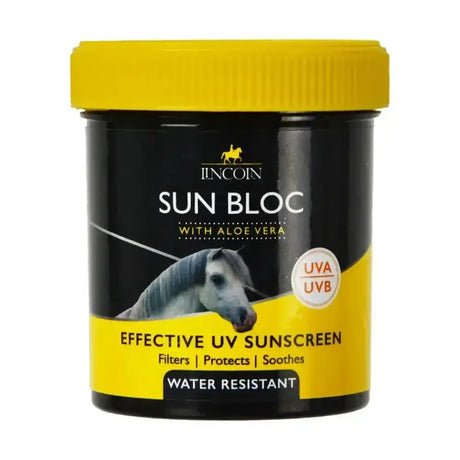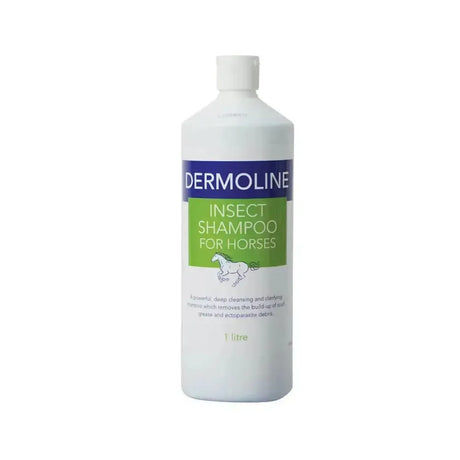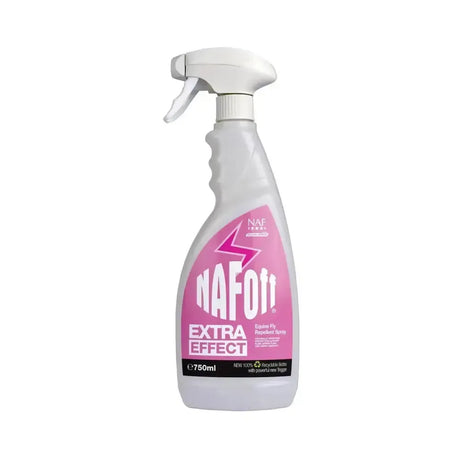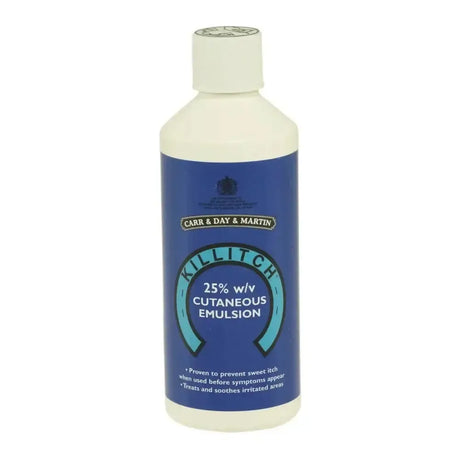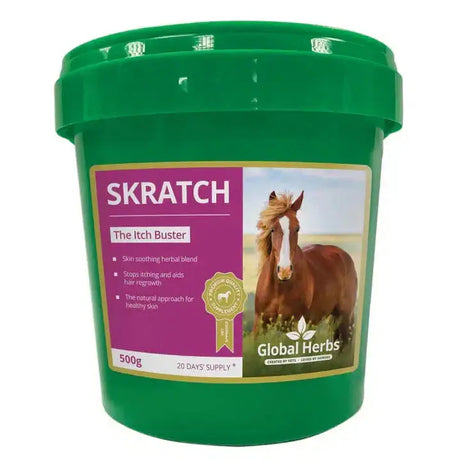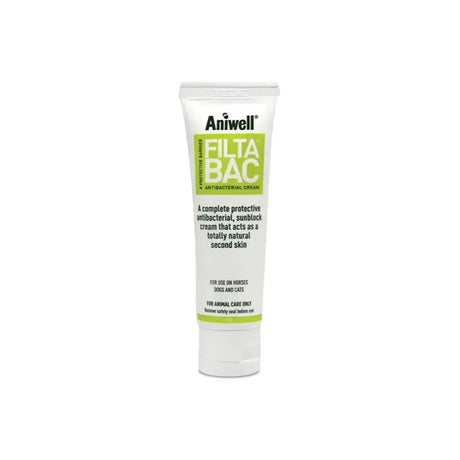Key Takeaways:
- Introduction
- Understanding Equine Worms
- Risks of Conventional Wormers
- Natural Worming Methods
- Herbs and Supplements for Parasite Control
- Preventative Measures for Optimal Health
- The Role of Regular Veterinary Care
Introduction
Equine health is paramount for the overall well-being and performance of horses. Just as with any other livestock or beloved pet, maintaining a horse's health requires diligent care and attention. One of the most prevalent concerns in equine management is the issue of worm infestations, which can significantly impact a horse's vitality, growth, and overall condition. Worms can lead to a range of health issues, from unintentional weight loss to severe digestive complications, making it crucial for owners to address these problems proactively.
Understanding Worm Infestations in Horses
Worm infestations are a common occurrence in horses, primarily due to their grazing habits. As horses consume grass and forage, they inevitably ingest worm eggs or larvae present in the environment. These parasites can reproduce within the horse, creating health challenges that, if left untreated, can lead to more serious consequences. Regular deworming routines are often essential for keeping these pests at bay, and too many horse owners find themselves cycling through traditional medications to combat this persistent problem.
Traditional Worming Methods
Traditionally, the most common approach to managing worms in horses has been the use of pharmaceutical wormers, which are designed to eliminate existing parasites and prevent future infestations. This method relies heavily on scheduled treatments, often leading to the overuse of certain chemical compounds. While effective to an extent, the over-reliance on these anthelmintics has raised concerns regarding their long-term effects on equine health and the environment. Moreover, the emergence of drug-resistant worm strains has underscored the need for alternative strategies.
The Shift Towards Natural Alternatives
In light of these challenges, there is a growing interest in natural alternatives to traditional worming practices. Owners are becoming more aware of the potential benefits that holistic and organic methods offer, not just in managing worm populations, but also improving their horse’s overall health. Natural solutions can include dietary changes, herbal supplements, and traditional practices that promote a balanced gut and immune system. This shift represents a broader trend towards sustainable equine care, allowing horse owners to take a more environmentally friendly and health-conscious approach to worm management.
As we delve deeper into the various natural worming solutions available, this guide aims to equip you with the knowledge and options necessary to support your horse’s health, ensuring they remain happy, healthy, and free from the burdens of internal parasites.
Understanding Equine Worms
Types of Worms Impacting Horses
Horses can be affected by a range of internal parasites, commonly referred to as worms. The most prevalent types include:
- Strongyles — Often categorized into large and small strongyles, they are notorious for their damaging potential. These worms migrate through the horse's bloodstream and can lead to severe health issues.
- Ascarids — Primarily affecting younger horses, these roundworms can cause significant digestive problems and respiratory distress if not managed properly.
- Tapeworms — While often overlooked, they can cause colic and other gastrointestinal complications. The life cycle of tapeworms involves an intermediate host, typically a mite.
- bots — These are larvae that develop in the horse's stomach and can lead to digestive blockages, impacting overall health.
Life Cycles of Equine Worms
Understanding the life cycles of these worms is crucial for effective management:
"The key to a successful worming regimen lies in understanding the enemy." - Equine Health Expert
Most equine worms have a life cycle that includes:
- Egg laying by adult female worms in the horse’s intestines.
- Eggs passing through the horse's feces to the environment.
- Larval development within the eggs, making them infectious to other horses.
- Ingestion of the larvae by horses, allowing them to develop into adults inside the host.
Symptoms of Infestation
The symptoms of worm infestation may vary, but common signs include:
- Weight Loss: Despite normal feeding, affected horses often lose weight.
- Colic: Abdominal pain can indicate a blockage or severe infestation.
- Coughing and Nasal Discharge: Symptoms that suggest respiratory issues, especially related to ascarid infestations.
- Poor Coat Condition: A dull or rough coat can signal underlying problems.
Health Impacts of Worms on Equines
The health impacts of unregulated worm populations can be significant:
- Nutritional Deficiencies: Worms compete for nutrients, negatively affecting growth and development.
- Colic and Intestinal Obstruction: Severe cases may require surgical intervention and can be life-threatening.
- Stunted Growth in Young Horses: Young horses are particularly vulnerable, as infestations can affect their potential.
Monitoring your horse for these symptoms and understanding the types of worms present in your area is essential for maintaining their overall health. By recognizing the signs of infestation and the potential impacts of equine worms, you can take proactive steps towards a healthier equine lifestyle.
Risks of Conventional Wormers
While conventional wormers have been a staple in equine care for decades, their use brings about several concerns that must be acknowledged. Understanding these drawbacks is crucial as we explore more natural alternatives for maintaining our horses' health.
Resistance Development
One of the most pressing issues associated with conventional wormers is the development of resistance. The constant exposure to the same active ingredients allows parasites to adapt and evolve, rendering traditional treatments less effective. This resistance not only poses a risk to the individual horse but can also impact the entire equine population. Key points regarding resistance include:
- Increased dosing frequency: Horses may require more frequent treatments, increasing costs and administration efforts.
- Limited treatment options: As resistance develops, fewer effective conventional products remain, leading to reliance on potentially harmful chemicals.
- Potential spread of resistant parasites: Resistant parasites can spread among different animals and farms, complicating control efforts.
Potential Side Effects
In addition to the risk of resistance, conventional wormers may have adverse side effects on horses. These side effects can vary widely and may include:
- Gastrointestinal irritation: Some horses may experience colic or other digestive upset after treatment.
- Allergic reactions: Certain horses may react negatively, leading to symptoms ranging from mild skin irritations to severe anaphylactic responses.
- Impact on metabolism: Long-term use of certain chemical wormers can disrupt a horse's metabolic processes, potentially leading to weight issues.
Impact on Gut Health and Overall Well-Being
The use of conventional wormers can have significant implications for a horse's overall gut health. Horses rely on a balanced microbiome for optimal digestion and nutrient absorption. However, harsh chemical treatments can disrupt this balance, leading to:
- Dysbiosis: A disrupted gut flora can result in conditions such as laminitis and colitis.
- Weakened immune system: An unhealthy gut may compromise a horse's immune response, making them more susceptible to diseases.
- Long-term health challenges: The repercussions of disrupted gut health can lead to chronic issues, affecting overall well-being and performance.
While managing your horse's health is essential, it is equally important to consider the implications of relying heavily on conventional wormers. A more holistic approach that emphasizes natural alternatives can mitigate these risks and promote a healthier lifestyle for your equine companions.
Natural Worming Methods
Understanding the health and well-being of your equines is crucial, particularly when it comes to addressing parasitic worms. Many horse owners are now turning to natural alternatives that prove to be both effective and gentle on their horses' systems. Here, we will explore various natural alternatives to conventional wormers, including diet adjustments, herbal remedies, and holistic practices such as rotational grazing and maintaining pasture cleanliness.
Diet Adjustments
Adjusting your horse’s diet can significantly impact their overall health and ability to fend off worms. Incorporating high-fiber feeds enriched with natural anti-parasitic properties can aid in keeping parasites at bay. For instance:
| Food Item | Benefits |
|---|---|
| Pumpkin Seeds | Contains cucurbitacin which may help in paralyzing worms, making them easier to expel. |
| Carrots | Rich in fiber which can support digestion and help in preventing worm infestations. |
| Apple Cider Vinegar | May help in creating an alkaline environment in the stomach which is inhospitable to worms. |
Regularly incorporating these items into your horse's diet can bolster their immune system and enhance their resistance to worms.
Herbal Remedies
Herbal remedies have been recognized for centuries as reliable options for maintaining health in livestock. Certain herbs possess natural anthelmintic properties proven to help reduce worm loads. Some notable herbs include:
- Wormwood: Known for its efficacy against intestinal worms.
- Tansy: Often used as a natural preventative against various types of parasites.
- Thyme: Rich in compounds that may help repel worms when consumed.
When considering herbal remedies, consult with a professional herbalist or vet to find tailored solutions suitable for your horse's specific needs.
Holistic Practices
Beyond diet and herbal interventions, holistic practices also play a significant role in managing your horse’s health and minimizing worm infestations. Two prominent methods include:
Rotational Grazing
Implementing a rotational grazing system limits a horse's exposure to parasites, as it allows pastures to recover and dry out, effectively breaking the worm life cycle. By rotating grazing areas, you significantly reduce worm reinfection rates.
Maintaining Pasture Cleanliness
Regularly cleaning the pasture and eliminating manure can drastically decrease the likelihood of worms thriving in the environment. Practices such as:
- Removing manure frequently.
- Practicing good sanitation in barns and feed areas.
These simple yet effective strategies will help maintain a hygienic environment, which is crucial for the overall health of your horses.
Adopting a combination of these natural worming methods can significantly improve your horse's health and reduce the need for harsh chemical treatments. Have you tried any of these methods? Share your experiences in the comments below!
Herbs and Supplements for Parasite Control
As the quest for natural alternatives to traditional horse wormers gains momentum, many horse owners are turning to time-tested herbs and supplements known for their anti-parasitic properties. Incorporating these remedies not only promotes overall health but also aligns with a holistic approach to equine care. Below, we delve into three powerful options: diatomaceous earth, garlic, and wormwood, exploring their benefits and safe administration methods.
Diatomaceous Earth
Diatomaceous earth is a natural substance composed of the fossilized remains of tiny aquatic organisms called diatoms. This powdery substance is renowned for its effectiveness in controlling various internal and external parasites.
- Benefits: It can help eliminate parasites by dehydrating them once ingested, acting as a natural deterrent to worms and other pests.
- Safety: Always choose food-grade diatomaceous earth and ensure that it’s free from any contaminants. Start with a small dose, gradually increasing it until reaching an optimal level suitable for your horse's size.
Garlic
Garlic has been traditionally used as a natural remedy for a variety of ailments, including its notable anti-parasitic properties. Its sulfur compounds act as a natural repellent to worms.
- Benefits: Besides deterring parasites, garlic can boost the immune system, improve circulation, and enhance overall health.
- Administration: A common method is to offer dried garlic powder, starting with just a pinch daily and slowly increasing to one tablespoon for larger breeds. Monitor for any adverse reactions.
Wormwood
Wormwood (Artemisia absinthium) is an herb commonly recognized for its role in promoting digestive health and acting against intestinal worms. Its active compounds have been shown to disrupt parasitic activities.
- Benefits: Wormwood may help to expel worms and improve overall gut health, contributing to better nutrient absorption.
- Safety: Use wormwood carefully, as high doses can be toxic. It’s generally recommended to use a tincture or extract, following the manufacturer’s guidelines for dosing based on your horse’s weight.
While these herbs and supplements can play a significant role in supporting your horse’s health and reducing parasite loads, it's crucial to monitor your equine companion’s response and consult with a veterinarian. By embracing these natural options, you ensure a healthier equine while minimizing the risk associated with conventional chemical treatments.
Preventative Measures for Optimal Health
As you explore natural alternatives to horse wormers, implementing effective preventative strategies is pivotal in guarding against worm infestations. A proactive approach not only enhances your horse's well-being but also contributes to a thriving equine environment. Below are some critical preventative measures that every horse owner should consider.
Regular Health Check-Ups
Consistent health check-ups are an essential component of a comprehensive equine care plan. Schedule visits with your veterinarian at least twice a year to conduct worming assessments and general health evaluations. During these check-ups, your vet can perform fecal egg counts to identify any potential infestations early on, allowing for timely intervention.
Managing Pasture Environments
The management of pasture environments plays a crucial role in minimizing the risk of worm infestations. Implementing a rotational grazing system can help prevent overgrazing and allow pastures to recover, which is vital for reducing the buildup of worm eggs in the environment. Additionally, regularly cleaning pastures of manure is essential in breaking the lifecycle of parasites.
| Action | Frequency |
|---|---|
| Fecal Egg Count | Every 6 months |
| Manure Removal | Weekly |
| Pasture Rotation | Seasonally |
Monitoring Horse Behavior
Being vigilant about changes in your horse's behavior can be a telltale sign of underlying health issues, including worm infestations. Watch for signs such as changes in appetite, weight loss, or unusual lethargy. These symptoms may indicate a need for a check-up or inspection for parasites. Keeping a behavior journal can help you track any patterns and discuss them with your vet during health assessments.
By implementing these preventative measures, you’ll not only support your horse’s overall health but also create a long-lasting partnership that thrives on proactive care. Remember, your commitment to prevention today fosters a healthier tomorrow for your equine companion.
The Role of Regular Veterinary Care
When exploring natural alternatives to horse wormers, the guidance of a veterinarian is essential. Collaborating with a veterinary professional ensures that horse health is continuously monitored and tailored to meet the individual needs of each equine. With so many factors influencing your horse's health, working closely with a vet can provide peace of mind and promote the overall well-being of your equine companion.
Understanding Individual Health Needs
Every horse is unique, with differing health statuses, ages, and lifestyles. A veterinarian can conduct a thorough health assessment to identify specific concerns that might affect your horse's response to natural worming treatments. For instance, certain horses may have allergies or pre-existing conditions that necessitate a tailored approach to their care.
"Veterinary guidance is crucial in integrating natural alternatives, ensuring that equine health is not compromised while exploring holistic options." — Dr. Jane Smith, Equine Health Specialist
Monitoring Health Effectively
Routine veterinary examinations are vital for catching potential health issues early on. Regular check-ups enable vets to monitor your horse’s overall health and their progress with any natural treatments you may be trying. This vigilant oversight can help prevent worm infestations from becoming serious and ensures that any signs of distress or discomfort are addressed promptly.
Customized Treatment Plans
Once a veterinarian assesses your horse’s health, they can work with you to develop a customized treatment plan. This plan may include a combination of natural alternatives and conventional practices based on your horse’s unique requirements. The veterinarian's expertise ensures that all treatments complement each other rather than conflict, promoting a holistic approach to your horse's well-being.
Education and Resources
Partnering with a veterinarian also provides access to valuable educational resources and ongoing support. Vets can guide you through the specifics of various natural alternatives, providing detailed information on what to expect and how to implement these practices in your routine. Additionally, they may recommend essential tests to help evaluate how well these alternatives are working over time.
In conclusion, while considering natural alternatives to horse wormers, the importance of a strong partnership with a veterinarian cannot be overstated. Their expertise not only safeguards your horse's health but also enhances the effectiveness of the treatments you choose. Regular veterinary care is a pillar of horse health, ensuring that each equine receives the personalized attention they deserve.
In Conclusion: Embracing Natural Alternatives for Healthier Equines
Discovering natural alternatives to horse wormers is not just a trend; it’s a commitment to the overall health and well-being of your equine companions. As we have explored throughout this post, conventional worming methods come with potential drawbacks that can impact both the horse and its environment. By integrating practices like herbal treatments, drenching with essential oils, and maintaining a strong nutritional regimen, we can promote a more balanced and sustainable approach to equine care.
Moreover, understanding the importance of regular fecal testing empowers horse owners to make informed decisions, minimizing the risk of overuse of chemical dewormers. Not only does this protect the health of your horses, but it also aids in guarding against the development of drug-resistant parasites, which has become a pressing concern in equine health management.
As we move forward, we encourage you to reflect on your approach to horse health. Consider experimenting with some of the natural alternatives we’ve discussed and observe how your horses respond. Further research, perhaps joining equine wellness communities, could provide you with additional insights and strategies tailored to your needs.
Ultimately, the path to healthier equines is rooted in knowledge and responsibility. Embrace these changes and take an active role in shaping a better future for your horses. Remember, small adjustments in your worming strategy today can lead to significant improvements in horse health tomorrow.
FAQs
What is the purpose of FAQs?
The FAQs section serves to provide quick answers to common questions that users may have, enhancing their understanding of the topic and improving overall user experience.
How are FAQs organized?
FAQs are typically organized in a clear and concise format, with questions highlighted and answers provided directly beneath them, allowing for easy navigation and information retrieval.
Why should I include FAQs on my website?
Including FAQs can improve your website's SEO by addressing specific queries, reduce the number of repetitive inquiries to support teams, and establish authority on the subject matter.
How often should I update my FAQs?
It’s recommended to review and update your FAQs regularly to ensure that the content is relevant, accurate, and reflective of any changes or developments in your area of focus.
Can I use keywords in my FAQs?
Absolutely! Incorporating keywords into your questions and answers can enhance SEO and help potential readers find your content more effectively.
What kind of questions should I include in my FAQs?
Focus on common concerns, specific issues related to your topic, and any queries that your audience frequently raises to create an informative and engaging FAQ section.
How can I make my FAQs more engaging?
To engage readers more, consider adding visuals, links to related articles, or even a search feature to help users find the answers they need quickly.
Should I categorize my FAQs?
Categorizing FAQs can be beneficial, especially for larger topics, as it allows users to navigate more easily to the information they seek.











